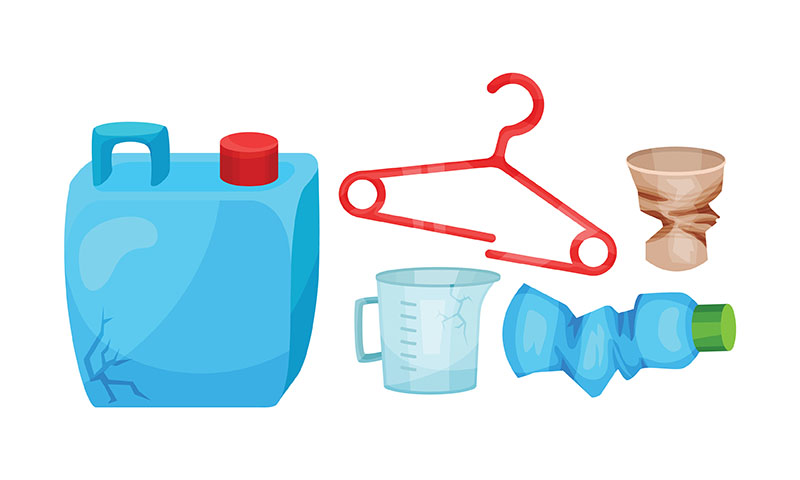
plastic
Definition
Plastic is a synthetic material made from polymers. Polymers are long chains of molecules that are made up of repeating units.
Plastics are made from a variety of different polymers, including polyethene, polypropylene, and polyvinyl chloride. These polymers are made from petroleum, natural gas, or coal.
Plastics are very versatile materials. They can be moulded into many different shapes and sizes. They are also strong and durable.
However, plastics are also a major source of pollution. They can take hundreds of years to decompose, and they can end up in our oceans and waterways. This can harm marine life and disrupt ecosystems.
There are a number of ways to reduce our use of plastic. We can recycle plastic whenever possible. We can also choose to buy products that are made from recycled plastic. And we can avoid products that are packaged in unnecessary plastic.
How can the word be used?
The environmental group called for a ban on single-use plastic bags.

Different forms of the word
Noun:
- plastic (a material that can be moulded or shaped into different forms).
- plastics (plural of plastic).
- plasticiser (a substance added to plastic to make it more flexible).
- plastic surgery (surgery that uses plastic to repair or reconstruct parts of the body).
Adjective:
- plastic (of or relating to plastic).
- plasticine (a type of modelling clay).
- plastic surgery (of or relating to plastic surgery).
Etymology
The word "plastic" comes from the Greek word "plastikos", which means "to mold or shape".
The word "plastic" was first used in English in the 17th century. It was used to refer to a type of clay that could be molded or shaped.
The root of the word "plastic" is the Greek word "plassein", which means "to mold or shape".
So, the word "plastic" literally means "something that can be molded or shaped". This is a reference to the fact that plastics are materials that can be molded or shaped into different forms.
Question
What things around you are made of plastic?
AQA Science Exam Question and Answer
Question:
Define plastic and discuss its environmental impact. Explain how plastic waste affects ecosystems and propose possible solutions to mitigate the negative consequences of plastic pollution.
Answer:
Plastic is a synthetic material made from polymers, characterised by its durability, versatility, and low cost. It's widely used in various industries, including packaging, construction, and electronics, due to its properties that make it resistant to degradation and corrosion.
However, plastic's environmental impact is a growing concern. Most plastics are non-biodegradable, leading to accumulation of plastic waste in landfills, oceans, and natural habitats. Plastic pollution poses severe threats to ecosystems, as animals can ingest or become entangled in plastic debris, causing injury or death. Additionally, plastic particles can enter the food chain, potentially impacting human health through contaminated seafood consumption.
To mitigate these consequences, solutions are needed at various levels. Reducing single-use plastic consumption, promoting recycling, and developing biodegradable alternatives are steps toward tackling plastic pollution. Government policies can enforce plastic waste management while raising awareness about the issue and encourage responsible consumption and waste disposal.
Innovations in materials science and technology are exploring ways to create plastics that are more environmentally friendly, biodegradable, or recyclable. By addressing plastic pollution comprehensively, we can safeguard ecosystems, wildlife, and human health, while maintaining the benefits of this versatile material.